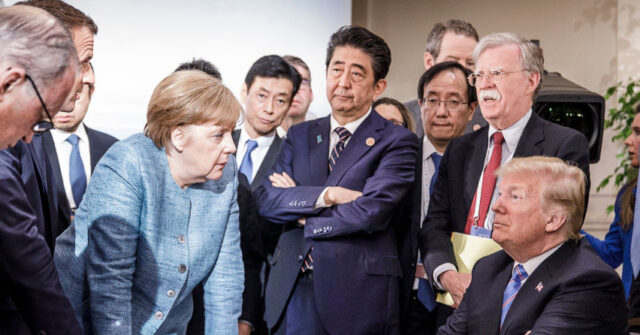In 2016, the general consensus among European leaders was that Hillary Clinton would win the U.S. presidential election, prompting numerous critiques and insults directed at then-candidate Donald Trump. The prevailing sentiment among European governments was one of affiliation with Clinton, as she was viewed as a stabilizing force in the transatlantic relationship. The European Council on Foreign Relations revealed this inclination, expressing a strong preference for Clinton, as Europeans hoped for continuity in security and diplomatic relations. Political leaders throughout Europe, such as Italy’s Matteo Renzi and France’s socialist government, made preemptive strikes against Trump, characterizing their opposition as a necessary defense against what they viewed as an emerging right-wing wave termed “Trumpisation.”
Following Trump’s unexpected victory, European responses echoed disbelief and concern, with many leaders expressing sentiments of alarm and a sense of loss for liberal democratic values. For instance, Donald Tusk, then-President of the European Council, interpreted Trump’s election as a warning sign for democracy, while French President Emmanuel Macron labeled it a period of uncertainty that needed to be confronted. Germany’s Angela Merkel attempted to congratulate Trump but instead delivered a list of expectations. Overall, the post-election European reaction highlighted a palpable tension and reluctance to accept the new reality, articulating concerns about how Trump’s administration could potentially undermine the foundations of Western alliances.
Fast forward to the present day, the political landscape reveals a stark shift in European attitudes as the prospect of a second Trump presidency looms. Leaders who once openly scorned Trump now appear to be adopting a more cautious and conciliatory approach. The UK’s Labour Party, transitioning from vocal criticism of Trump to attempting to build rapport with his potential administration, epitomizes this change. UK Foreign Minister David Lammy, who previously labeled Trump in highly derogatory terms, represents the transformation in rhetoric, exhibiting a dramatic shift in perspective that underscores a desire for engagement rather than confrontation.
The evolution of European leadership perspectives is also evident in the new NATO chief, Mark Rutte, who has seemingly mellowed his stance. His past comments regarding Trump reflected alarm and disagreement, in stark contrast to his current assertions of respect and collaboration. This newfound willingness to foster a dialogue with a possible future Trump administration reveals a pragmatic realization among European leaders regarding the unpredictable nature of American democracy. The trend suggests a lesson learned from the 2016 election, with European leaders stepping back to reassess their approaches to avoid alienating a potential U.S. leader whose policies may be more favorable or aligned with their own national interests.
Additionally, the rightward political shift within Europe has created a more favorable atmosphere for a future Trump presidency. Once perceived as an anomaly, populist figures and traditionally right-leaning governments now dominate a significant portion of the European political landscape. Countries such as the Netherlands, Italy, and Sweden now breed conservative leadership, indicating a broader acceptance of Trump-like governance. Leaders like Geert Wilders, Giorgia Meloni, and others are reshaping the European political narrative, aligning the continent more closely with populist ideologies. This political shift has cultivated an environment that welcomes the prospect of a second Trump term more than in previous years.
The illustration of these dynamics also reflects a changing global sentiment, suggesting a readiness for Trump’s approach that was once unthinkable. The European political climate, marked by rising conservative sentiments and a growing emphasis on national sovereignty, has fostered an alignment with American populist themes, potentially setting the stage for a more cooperative future between a re-elected Trump and European leaders. The convergence of right-wing ideologies across the Atlantic hints at a transformative moment in transatlantic relations, shaping both immediate political perceptions and long-term strategic dialogues. Ultimately, this indicates a world that may, in various aspects, be more open to embracing Trump compared to eight years ago, heralding a new chapter in global political diplomacy.

